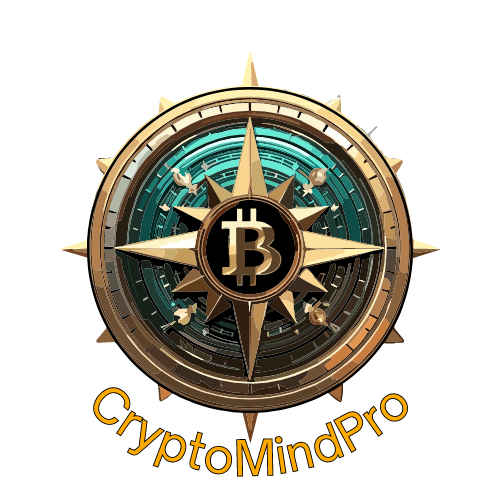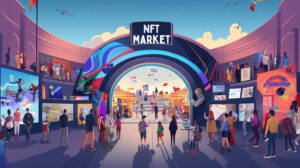Blockchain and retail—two words you might not often hear together, but when you do, it’s like a symphony of innovation and transformation.
Welcome to the future of shopping, where technology meets consumer needs in ways you’ve never imagined. In this comprehensive guide, we’ll explore how blockchain is not just disrupting but revolutionizing the retail industry.
From supply chain management to customer trust, the applications are as diverse as they are impactful.
Key Takeaways
Points Description Supply Chain Blockchain can bring unprecedented transparency and efficiency to retail supply chains. Customer Trust Leveraging blockchain’s immutable ledgers can significantly boost consumer confidence. Decentralized Commerce The future of retail could be decentralized, offering more control and better experiences for both retailers and consumers.
Whether you’re a retailer looking to enhance your operations or a consumer curious about how your shopping experience is about to get a whole lot better, this article is your go-to resource.
We’ll delve into real-world applications, explore the startups that are making waves, and even address some of the challenges that lie ahead.
So, let’s get started on this journey into the transformative potential of blockchain in retail.
“Blockchain is not just a technology; it’s a new way of doing business in the retail sector.”
The Transformative Potential of Blockchain in Retail
How Blockchain Improves Supply Chain Management
The retail industry has always grappled with supply chain inefficiencies—be it delays, lack of transparency, or fraud.
Enter blockchain, a technology that promises to iron out these kinks in a way that’s both revolutionary and practical.
- Transparency: With blockchain, every transaction is recorded on a decentralized ledger, visible to all parties involved. This eliminates the chances of fraud and ensures product authenticity.
- Efficiency: Smart contracts automate many of the manual processes involved, speeding up the entire supply chain from manufacturer to retailer to consumer.
- Cost-Effectiveness: By reducing the need for intermediaries and automating processes, blockchain can significantly lower operational costs.
“Blockchain is to supply chain what the internet was to communication.”
Enhancing Customer Trust Through Blockchain
Trust is the cornerstone of any retail business.
But how do you ensure that the product you’re buying is genuine or that your personal data is secure?
Blockchain has some compelling answers.
- Immutable Records: Once data is recorded on the blockchain, it can’t be altered. This ensures the authenticity of the product.
- Data Security: Blockchain’s cryptographic functions protect your personal data better than any password could.
- Transparency: With blockchain, you can trace the journey of a product right from its origin. This not only assures quality but also combats counterfeit goods.
For more insights into how blockchain enhances transparency in different sectors, check out our article on Blockchain and Journalism: From Fake News to Immutable Facts.
Decentralized Commerce: The Future is Here
The concept of decentralized commerce might sound like something out of a sci-fi movie, but it’s closer to reality than you think.
Imagine a world where you, the consumer, have as much control as the retailer.
- Peer-to-Peer Transactions: No middlemen mean you get to interact directly with the manufacturer, which often translates to better prices.
- Tokenization: Assets can be tokenized on the blockchain, allowing for fractional ownership and opening up new investment opportunities in retail.
- Smart Contracts: These self-executing contracts with the terms directly written into code can automate and streamline many retail processes, from payments to refunds.
Real-world Applications and Case Studies
Walmart and IBM’s Food Safety Blockchain Solution
One of the most compelling real-world applications of blockchain in retail comes from Walmart’s collaboration with IBM.
They’ve developed a food safety blockchain solution that tracks the journey of food items from farm to store shelf.
- Traceability: The system allows for real-time tracking of food items, ensuring quality and safety.
- Accountability: With blockchain, every stakeholder in the supply chain is accountable, making recalls more efficient and effective.
- Consumer Confidence: Knowing the origin of food items boosts consumer trust, a win-win for both Walmart and its customers.
“Blockchain in retail isn’t just a concept; it’s a proven solution with real-world applications.”
Other Notable Retail Companies Utilizing Blockchain
Blockchain isn’t exclusive to giants like Walmart; it’s making waves across the retail sector.
Here are some other companies that are leveraging blockchain to their advantage:
- De Beers: Uses blockchain to track the provenance of diamonds, ensuring they are conflict-free.
- Alibaba: Utilizes blockchain for its cross-border supply chain, aiming to make global trade more transparent and efficient.
- Starbucks: Employs blockchain to trace coffee beans from farm to cup, enhancing transparency and sustainability.
For a deeper dive into how blockchain is transforming other sectors, you might want to read our article on Blockchain and Agriculture: A Revolution in Food Transparency and Traceability.
Startups Innovating in Blockchain and Retail
The startup ecosystem is buzzing with innovations that aim to disrupt the retail industry using blockchain.
- OpenBazaar: A peer-to-peer marketplace that uses blockchain to eliminate middlemen.
- Loyyal: Offers blockchain-based loyalty and rewards programs.
- Provenance: Provides transparent supply chain solutions for various retail sectors.
Challenges and Future Prospects
The Roadblocks in Implementing Blockchain in Retail
While blockchain holds immense promise for revolutionizing the retail sector, it’s not without its challenges.
Let’s take a look at some of the hurdles that need to be overcome:
- Scalability: As more transactions are added to the blockchain, the system needs to scale efficiently to handle the increased load.
- Regulatory Concerns: The legal landscape for blockchain is still evolving, making compliance a tricky issue for retailers.
- Adoption Rates: Despite its potential, blockchain adoption in retail is still in its nascent stages, requiring more awareness and education.
“The road to blockchain adoption in retail is paved with challenges, but the destination is worth the journey.”
The Future of Blockchain and Retail: What Lies Ahead
The future is bright for the intersection of blockchain and retail, with several exciting developments on the horizon:
- Tokenization of Assets: Imagine owning a fraction of a high-value item like a rare painting or antique, all thanks to blockchain.
- AI and Blockchain: The combination of Artificial Intelligence and blockchain could lead to smarter, more efficient retail operations.
- Sustainability: Blockchain can help in tracking the sustainability practices of suppliers, encouraging eco-friendly retail.
For more on the future prospects of blockchain in various sectors, you might find our article on Blockchain and Agriculture: A Revolution in Food Transparency and Traceability enlightening.
The Blockchain Retail Revolution: Your Ticket to the Future
As we’ve journeyed through the transformative potential of blockchain in retail, one thing is clear: we’re standing on the cusp of a revolution.
From redefining supply chain management to enhancing customer trust and even paving the way for decentralized commerce, blockchain is set to change the retail landscape in ways we can only begin to imagine.
“Blockchain in retail is not a question of if, but when. And the ‘when’ is now.”
Frequently Asked Questions: Navigating the Blockchain Retail Revolution
| Questions | Answers |
| What is blockchain in retail? | Blockchain in retail refers to the use of blockchain technology to enhance various aspects of the retail industry, including supply chain management, customer trust, and decentralized commerce. |
| How does blockchain improve supply chain management? | Blockchain brings transparency, efficiency, and cost-effectiveness to supply chain management. It allows for real-time tracking and automates many manual processes. |
| Can blockchain really enhance customer trust? | Absolutely. Blockchain’s immutable ledgers and cryptographic functions ensure data security and product authenticity, thereby boosting customer trust. |
| What are some real-world applications of blockchain in retail? | Companies like Walmart, De Beers, and Alibaba are already utilizing blockchain for various purposes, from food safety to diamond tracking. |
| What are the challenges in implementing blockchain in retail? | Some challenges include scalability issues, regulatory concerns, and slow adoption rates. |
| Is blockchain in retail just a fad? | No, blockchain has proven use-cases and is expected to play a significant role in the future of retail. |
| How can I get involved in blockchain and retail? | Start by educating yourself on the technology and its applications in retail. Platforms like CryptoMindPro offer valuable insights and opportunities to get involved. |




